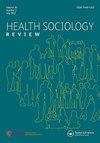有毒的礼物:中国香烟交换中的互惠和社会资本
IF 2.5
2区 医学
Q2 HEALTH POLICY & SERVICES
引用次数: 2
摘要
在一些社会中,香烟作为礼物的广泛交换使烟草制品的象征性可取性正常化,并促进了吸烟。人们如何以及为什么交换有毒物质作为礼物,我们所知甚少。本研究认为,社会交换过程中涉及的两个关键因素——互惠和社会资本——可以解释礼品香烟的流通。我们对来自中国的户主进行了多阶段调查,测量了每个家庭流通的礼物香烟的数量和货币价值,并在集体参与、社会关系和信任三个维度上测量了社会资本。普通最小二乘回归表明,互惠与礼物香烟的价值和数量密切相关。社会资本的所有三个维度都与赠送香烟有不同的联系。收入和阶级越高,收到的香烟的数量和价值也越大。这项研究将赠送香烟的现象扩大到更普遍的互惠和社会资本模式,其中更好的社会资本和社会经济地位具有讽刺意味的是导致更高的烟草使用风险和危害健康。我们建议政策制定者瞄准中国非正规经济中特有的礼物交换社会需求。本文章由计算机程序翻译,如有差异,请以英文原文为准。
The toxic gift: reciprocity and social capital in cigarette exchange in China
ABSTRACT The widespread exchange of tobacco cigarettes as a gift in some societies normalises the symbolic desirability of tobacco products and promotes smoking. Little is known about how and why people exchange toxic substances as gifts. This study argues two key factors involved in social exchange processes – reciprocity and social capital – can explain gift cigarette circulation. We conducted a multistage survey among household heads from China and measured the quantity and monetary values of outgoing and incoming gift cigarettes circulated by each household and measured social capital in three dimensions: collective participation, social ties, and trust. Ordinary Least Square regressions showed that reciprocity is strongly and significantly associated with both the value and quantity of gift cigarettes. All three dimensions of social capital are varyingly associated with gifting cigarettes. Income and higher classes are also associated with greater quantity and value of received cigarettes. This study broadens the phenomenon of gifting cigarettes to the more universal patterns of reciprocity and social capital, wherein better social capital and socioeconomic position ironically lead to a higher risk of tobacco use and endanger health. We suggest policymakers target the endemic social need for gift exchange in China’s informal economy.
求助全文
通过发布文献求助,成功后即可免费获取论文全文。
去求助
来源期刊

Health Sociology Review
Multiple-
CiteScore
7.50
自引率
0.00%
发文量
14
期刊介绍:
An international, scholarly peer-reviewed journal, Health Sociology Review explores the contribution of sociology and sociological research methods to understanding health and illness; to health policy, promotion and practice; and to equity, social justice, social policy and social work. Health Sociology Review is published in association with The Australian Sociological Association (TASA) under the editorship of Eileen Willis. Health Sociology Review publishes original theoretical and research articles, literature reviews, special issues, symposia, commentaries and book reviews.
 求助内容:
求助内容: 应助结果提醒方式:
应助结果提醒方式:


